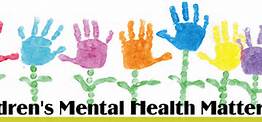An article I wrote today for a local newspaper…
Stress and Anxiety – Why do I feel this way all the time?
I feel so nervous at work and at home every day. I can’t seem to get it under control. My boss might ask me to do something that I don’t know how to do, or my kids may get into trouble at school. These feelings are always there and I don’t know why…
Many of us feel stress and anxiety during the day – yet we cope with it in different ways, and while we don’t always understand why we feel it, it is usually manageable. However, an alarming number of Americans experience anxiety, frequently due to stress. Nearly 40 million people, or about 18% of Americans each year experience nervousness, uncertainty, fears, and restlessness. For these people, the feelings are not a normal reaction to stress, but instead may feel like panic, and it affects their daily life at work, at school, and at home.
Feelings of anxiety may be felt most in the social situation, or plague us when we have to participate in a classroom experience or answer the teacher’s question. Often, it is not clear why we have the feelings – the anxiety may come up in a meeting, all of a sudden, with little warning. Anxiety, and the stress that we experience, is perhaps the most common of mental difficulties that people experience – and there are several different kinds or types of anxiety disorders. In addition, anxiety can also be part of, or exist alongside, other disorders – such as depression, physical illness (headaches, stomach problems), sleeping difficulties – and may also trigger behaviors like substance or alcohol abuse.
Symptoms include:
- Constant worrying
- Trouble sleeping
- Nausea, sweating, rapid heartbeat
- Concentration or focusing problems
- Feeling easily startled or fearful
- Avoiding social situations
Both adults and children may also exhibit other symptoms, such as striving for approval, needing constant reassurance about performance, lacking confidence, and needing to be perfectionistic.
The stress that we feel in our work, at our home, or in the school situation can interfere with our daily activities to the point that we feel unable to function normally. It is at this time that one needs to seek out some help, and get some assistance in understanding why we are experiencing the difficulty, and how to find different or better ways of coping.
Anxiety disorders are classified into 5 different types or areas, each of which has different symptoms, coping mechanisms, and treatment recommendations. You may experience frequent panic attacks (Panic Disorder), or fear dirt and germs, and needing to wash their hands incessantly (Obsessive-compulsive Disorder). Alternatively, you may not want to go outside of your home or go to the school function because you’re frightened of the social situation (Social Anxiety or Phobia). Individuals with Post-Traumatic Stress Disorder have experienced trauma – often repeatedly, and need a safe environment to recall the events and reduce their fears. (As I pointed out in a previous article, PTSD is common in soldiers, women and children that have experienced domestic violence, rape or sexual assault victims).
The causes of anxiety disorders are complex, and there is no research that shows just one factor being involved. Rather, the causes may be environmental (domestic violence or reactions to disaster), genetic in nature, or due to psychological and developmental factors. Most individuals that experience post-traumatic stress disorder have experienced some trauma in their life, and interestingly, genetics may play a role in whether someone then develops PTSD, or some other disorder as a way of coping with the trauma.
Treatments are many, and are varied – depending on how the anxiety, or the reaction to stress is experienced. Different types of treatment are called for depending on the specifics of your difficulties. Medications may be helpful, and may be recommended by your physician or mental health provider. However, an important point is that medication alone will not solve the difficulty – and psychotherapy, or a ‘talking therapy’ will be necessary. Certain types of therapy are currently being researched (cognitive behavioral) for some of the anxiety disorders. Many of the psychotherapies will include learning about relaxation approaches, such as breathing exercises or making changes in your lifestyle. The therapeutic relationship with your mental health provider is of utmost importance, as this relationship will be the key to helping you cope differently with the stress and the anxiety.
Please email me with questions or comments.
Rudy Oldeschulte, M.A., J.D. is a Del Rio psychotherapist, specializing in individual psychotherapy and parent guidance. He has served on the faculty of the University of Arizona College of Medicine and taught at the British Association of Psychotherapists. Post- graduate training and education was done in London and at the University of Michigan.
Email address is: roldeschulte@gmail.com and his website is: http://www.rudyoldeschulte.com


















